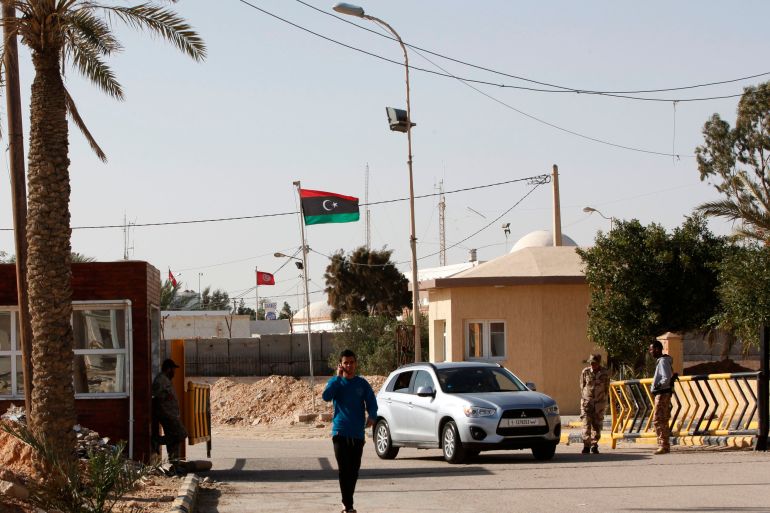Libya-Tunisia border crossing closed following clashes
Closure comes as Libya says ‘outlaws’ attacked the Ras Jedir border crossing.

Tunisia and Libya have closed a major border crossing at Ras Jedir due to armed clashes, according to Tunisian state TV and Libyan authorities.
Libya’s interior ministry said in a statement on Tuesday that “outlaws” had attacked the border, which sees a large flow of Libyans, often going to Tunisia for medical treatment, and trucks with goods coming in the opposite direction.
Keep reading
list of 3 itemsRescue group decries Libya coastguard ramming into migrant boat
East Libya commander Haftar in Moscow for talks with Putin
“This action carried out by these outlaw groups will not be tolerated, and legal measures and the most severe penalties will be taken against those involved,” the Tripoli-based ministry said, without giving further details.
The border post in the desert area of Ras Jedir about 170 kilometres (105 miles) from the Libyan capital Tripoli, is the main crossing point between the two North African countries.
According to local media, armed clashes broke out on Monday night between armed groups who control Ras Jedir and security forces sent by Tripoli.
On Monday, Libyan Interior Minister Imad Trabelsi had directed the ministry’s “law enforcement department” to intervene at Ras Jedir to “combat smuggling and security violations” and facilitate travel.
Unverified footage on social media showed a burning vehicle at Ras Jedir and people running, as well as the sound of gunfire.
Tunisia’s Tataouine Radio said late on Monday that Tunisia closed the crossing for the safety of citizens going to Libya.
Groups from cities in the border area have for years controlled Ras Jedir, benefitting from the lucrative parallel border trade.
Thousands of Tunisian families in the south also make a living from the trade.
Libya has been mired in insecurity since a 2011 NATO-backed uprising led to the overthrow of longtime ruler Muammar Gaddafi, and is split between eastern and western factions, with rival administrations governing each area.